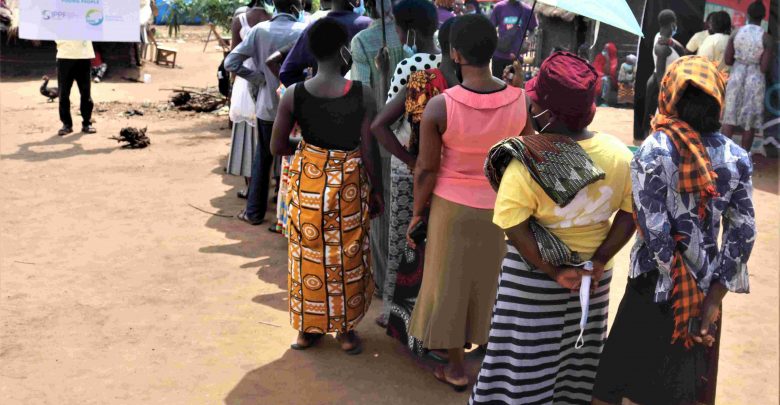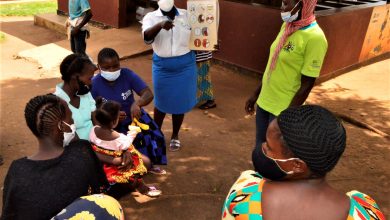
Breaking NewsHealthNational
Women Refugees Embrace Sexual and Reproductive Health Services in Kampala City
Reproductive Health Uganda, through the DANIDA project has served 1300 urban refugees who turned up for various sexual reproductive health and rights services, at its Bwaise clinic between in 2021.
By Peter Ghaali.
Through trained peer educators, urban women and refugees have had continual access to sexual reproductive health (SHR) services in Kampala city.
Several outreaches, (56) have been carried out within urban refugee settlements, according to Namukwana Rhoda, Branch In-charge (RHU) Bwaise in 2021.
SRH services and information were provided to community members during these activities, and they requested that peer educators continue to raise awareness about health issues.
Our peer educators have resorted to taking all identified clients with reproductive health (RH) problems to the RHU Bwaise clinic for assistance as a result of this.
Nkoronyi Sifa, a trained peer educator, worked with a total of 25 clients, two of whom had advanced cervical cancer. RHU provided care, medical treatment, and referrals to other clients with SRH difficulties under the addressing the sexual and reproductive health and rights needs of vulnerable populations programme, which was funded by the Danish government. One of the refugee women’s leaders has asked RHU care providers why fibroids and other sexually transmitted infections (STIs) are so common among refugee women.
www.medicalnewstoday.com website says that it remains unclear exactly what causes fibroids. Their development may be linked with the person’s estrogen levels.
During a person’s reproductive years, estrogen and progesterone levels are higher. When estrogen levels are high, especially during pregnancy, fibroids tend to swell. Low estrogen levels are associated with the shrinkage of fibroids. This can occur during and after menopause. It can also occur when taking certain medications, such as gonadotropin-releasing hormone (GnRH) agonists or antagonists. Genetic factors may also affect the development of fibroids. For example, having a close relative with fibroids is associated with an increased risk of developing them oneself.
There is also evidenceTrusted Source to suggest that red meat, alcohol, and caffeine are associated with an increased risk of fibroids. An increased intake of fruit and vegetables may be linked with a reduced risk. Overweight and obesity are associated with an increased risk of fibroids. Childbearing is associated with a lower risk of developing fibroids. The risk reduces each time the person gives birth.
According to Wanene Rachael, a Bwaise branch Health Service Provider who followed up on these clients, it is critical to equip peer educators with SRH information in order to eliminate community delays in accessing health services and to have timely referrals for better health outcomes.
RHU has served 1300 urban refugees who turned up for various sexual reproductive health and rights services, at its Bwaise clinic between in 2021.
There are 80,000 urban refugees in Uganda, according to the United Nations High Commission for Refugees (UNHCR), out of a total of 1.4 million refugees.
Collaboration in service delivery and inclusion of community peers can help to reduce SRH-related difficulties.





